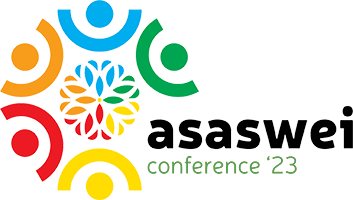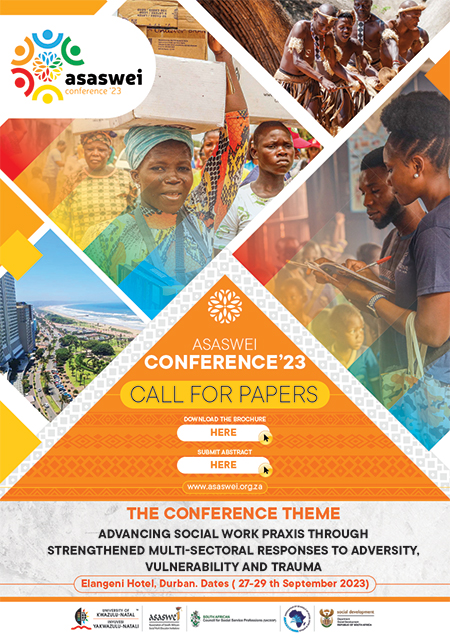The Table page displays a submission's general information and data using tabular layout. Watch video
Submission information
Submission Number: 47
Submission ID: 47
Submission UUID: 0c3cf134-514a-4898-8977-cd13408ac8c6
Submission URI: /2023/abstracts
Created: Sat, 05/20/2023 - 17:49
Completed: Sat, 05/20/2023 - 17:55
Changed: Fri, 07/28/2023 - 19:26
Remote IP address: 72.36.119.114
Submitted by: Anonymous
Language: English
Is draft: No
Current page: Complete
Webform: Abstract
| Title | Dr. |
|---|---|
| Lastname | Kubanga |
| Firstname | Kefentse |
| [email protected] | |
| Mobile | +1 205 239 8075 |
| Institution | The University of Alabama |
| Biosketch | Kefentse P. Kubanga is a PhD Candidate at the University of Alabama School of Social Work. Kefentse is interested in research on economic empowerment interventions. She is also a lecturer of Social Work at the University of Botswana. Her research examines the intersection of economic interventions and resilience among low-income populations. Kefentse is also interested in research around financial social work, microfinance, financial literacy and asset building for low-income populations. Her research also draws from her practice experience as a social welfare officer where she implemented psychosocial support services and programs for vulnerable individuals, families and communities in Gaborone, Botswana. |
| Is there a Second Presenter? | No |
| Title of Presentatation | Exploring the Efficacy of Microfinance Interventions in Enhancing the Resilience of Low-Income Women in Botswana |
| Theme Selection | THEME 2: Building sustainable, resilient, and self-reliant communities through indigenous modalities, inter-sectoral collaborations, and partnerships |
| Subtheme TWO Selection | SUB 2.3 Strengthening indigenous economic empowerment structures in responding during and after adverse situations |
| Select your Presentation Type | Oral Presentation |
| Abstract | Financial empowerment of low-income populations has long been hailed as a strategy that could foster their long-term resilience. However, little is known about how which microfinance programs are associated with the resilience of low-income women in Botswana. Through the lens of the resilience theory, this phenomenological study explored resilience experiences of 19 low-income women enrolled in a microfinance program. Content analysis was adopted to develop themes around participants` strengths, talents, skills and personal traits they used to overcome adversity. The findings revealed that women`s strengths included being industrious, dexterous and caregivers, and talented in baking, sewing, crocheting and hairdressing. Religion and prayer were a source of hope during difficult times while their entrepreneurial skills were a means of survival. This study demonstrates that interdisciplinary collaborations between microfinance providers and human behavior practitioners could strengthen economic empowerment interventions to leverage on clients` positive attributes to respond to their non-financial needs. |
| Title | Prof |
| Firstname | Petro |
| Lastname | Botha |
| Does the Abstract fit the selected Theme? | Yes |
| What Area does this Abstract Focus on? | Practice |
| Status | Rejected |
| Title | Dr |
| Firstname | Nkosiyazi |
| Lastname | Dube |
| Does the Abstract fit the selected Theme? | Yes |
| What Area does this Abstract Focus on? | Empirical Research |
| Status | Accepted |

